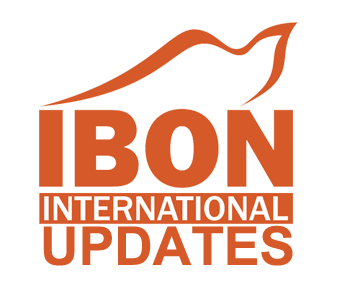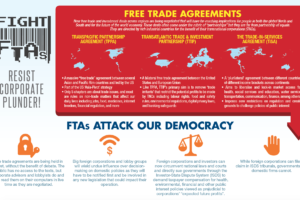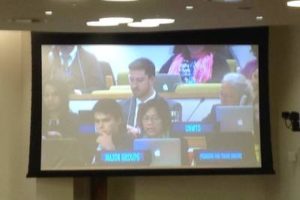IBON International Updates #2
Sustainable Development
A joint meeting of the intergovernmental negotiations on the preparatory processes of the Third International Conference on Financing for Development (FfD) and the post-2015 Development Agenda was held recently at the UN headquarters in New York. The discussions that took place from April 21 to 24 centered on the substance as well as the relationship between the FFD agenda and the intergovernmental negotiations on the Means of Implementation (MOI) for the post-2015 development agenda.
Many of the member states belonging to the Organisation for Economic Cooperation and Development (OECD) argued that the FFD Conference to be held in Addis Ababa this coming July should focus on the MOI for the post-2015 sustainable development goals (SDGs). The EU underscored the need to move from FfD to “financing for sustainable development”. It also recommended that the outcomes of the July Addis conference be integrated into the post-2015 agenda to be concluded in September. Many of the developed countries also expressed preference for a single process for review and monitoring of the two frameworks.[1]
The G77 and China on the other hand, highlighted the distinct but interrelated nature of these two processes. They pointed to the fact that the FfD is a separate process that predates the discussions on the Post-2015 agenda, and goes beyond merely financing the SDGs. At the same time, they underscored the importance of non-financial means of implementation (e.g. technology facilitation) for the post-2015 agenda which are not traditionally part of the FfD discussions. Merging these two processes, they warned, would dilute both to their lowest common denominator and lower the level of ambition across the board.[2]
Many groups from civil society that have long been engaged in the FfD process also warn that merging these two processes would crowd out many important elements of the Monterrey Consensus[3], particularly those related to systemic issues and the democratization of economic governance.[4] Moreover, CSOs warn that shifting the locus of MOI discussions to Addis Ababa also increases the influence of developed countries and finance ministries that have traditionally been involved in this process. This is likely to lead to outcomes wherein human rights, social justice and environmental sustainability get short shrift.
But regardless of where financing for sustainable development is discussed, the emerging consensus among governments and international financial institutions is alarming.
At the interactive dialogue with Major Groups and other Stakeholders engaged in the FfD and post-2015 processes last 23 April, many CSOs expressed deep concern that in both the Zero Draft of the FfD as well as in the OWG report, there appears to be a strong trend towards ‘outsourcing’ government responsibilities for the MOI of sustainable development to the business sector. This is especially problematic given the difficulties associated with corporate accountability resulting from weak or non-binding regulatory frameworks and the transnational nature of much of private finance and investments.
IBON International expressed particular concern about the prominent role given to private finance and to public-private partnerships (PPPs). The group underscored that private finance aims to maximize profits at the shortest possible time. As such it tends to be incompatible with the equitable provision of public goods and social services. They also noted that the current modalities for leveraging private finance such as blended concessional financing increase public debt burdens and shift risks to the public sector while privatising profits.[5]
These issues will be central to the debates in Addis Ababa as well as in New York as the negotiations for the final outcome of the Post-2015 development agenda enter their final stages.
– eof
____________________________________________________________________________
[1] Some statements by member states may be viewed at https://sustainabledevelopment.un.org/post2015/moiandglobalpartnership
[2]Sengupta, Ranja. (24 April 2015). “Financing for Development and post-2015 development agenda are distinct and complementary, says South”
[3] The Monterrey Consensus refers to the outcome of the 2002 United Nations International Conference on Financing for Development held in Monterrey, Mexico. It embraces six areas of Financing for Development: (1) Mobilizing domestic financial resources for development; (2) Mobilizing international resources for development: foreign direct investment and other private flows; (3) International Trade as an engine for development; (4) Increasing international financial and technical cooperation for development; (5) External Debt; and (6) Addressing systemic issues: enhancing the coherence and consistency of the international monetary, financial and trading systems in support of development.
[4] CSO FfD Group
[5]https://iboninternational.org/article/2015/04/intervention-session-follow-and-review-ffd-and-post-2015-moi



